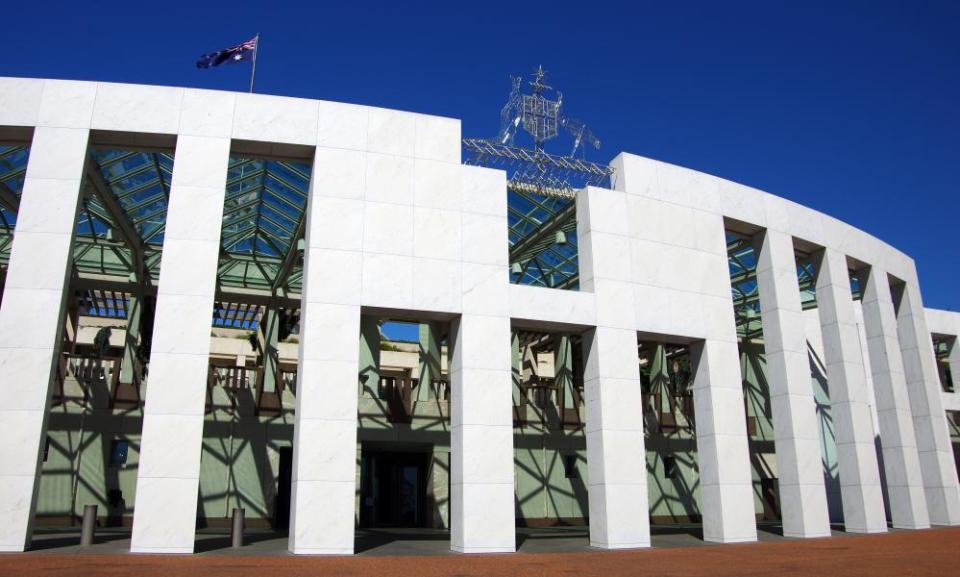Coalition’s foreign agents bill attacked for overreach and curtailing ‘freedoms of expression’

The government’s bill to require Australians to register if they are lobbying on behalf of foreign entities is “startling” in its reach and unsuspecting organisations will face criminal penalties for failure to register, a Senate committee has been warned.
The Australian Financial Markets Association has warned the parliamentary joint committee on intelligence and security that the registration scheme would have an “adverse impact on many organisations ... that should be functionally outside of its scope”.
The foreign influence transparency scheme bill requires people who undertake political, campaigning or lobbying activities “on behalf of foreign principals” to sign up to a public register.
Foreign principals include not only foreign governments but also businesses, political organisations and any individual who is not a resident or citizen of Australia.
There are limited exemptions for people lobbying with respect to or providing humanitarian assistance, legal advice, consular help, religion, news media and in the course of commercial activities.
The AFMA, a not-for-profit industry body representing financial market participants and wholesale banking service providers, submitted that this “expansive definition” acted in a “catch-all manner”.
It warned the bill would require groups as diverse as arts bodies and sporting associations to register if they have any non-Australian members and contact the government to seek funding or promote an event.
Even a person who helped a non-Australian citizen or resident to make representations about their visa status would need to register, it said.
Intentional failure to register is punishable by criminal penalties of up to seven years’ prison; reckless failure by up to five years. Failure to keep appropriate records is subject to a strict liability offence, with a penalty of $12,600.
AFMA said the reach of the bill was “startling” and would make it “one of the most wide-reaching regimes in the Australian regulatory system”.
It argued the registration scheme would prove particularly onerous for membership-based organisations, which conduct advocacy on behalf of all their members, some of which may be foreign, including submissions to government inquiries and communications with officials.
AFMA blasted the government for the “absence of prior consultation” which it said had given rise to “unintended consequences” that could have been avoided.
Tony Kevin, an Australian career diplomat for 30 years and former ambassador to Poland and Cambodia, labelled the bill an “attack on the freedoms of expression and association that all Australians currently enjoy”.
He argued it would require Australians who publicly express views on international political issues and who have contact with foreign persons to register or risk criminal charges.
Kevin questioned what “advocacy” would be captured by the scheme, arguing that “there is a fine line between elucidating a foreign country’s position on an issue in international contention, eg Russia on the Crimea issue, or China on the disputed South China Sea territories, and advocating that position”.
“Much of my writing explains Chinese or Russian views on international issues in contention: does this make it advocacy?”
While introducing the bill in December, Malcolm Turnbull said it was “intended to provide transparency for the Australian government and the Australian public about the forms and sources of foreign influence in Australia”.
He said the focus was on “the activities of foreign states and their agents in Australia and not the loyalties of Australians who happen to be from a foreign country”.
At a press conference on 5 December, Turnbull said the principle behind the scheme was that “if a person or entity engages with the Australian political landscape on behalf of a foreign state or a principal, then they should register.
“Being registered, I should say, should not be seen as any kind of taint and certainly not a crime.
“But if you fail to disclose your ties, then you will be liable for a criminal offence.”
He said that organisations or individuals who “think they might come within the ambit of the legislation would be wise to register”.

 Yahoo News
Yahoo News 